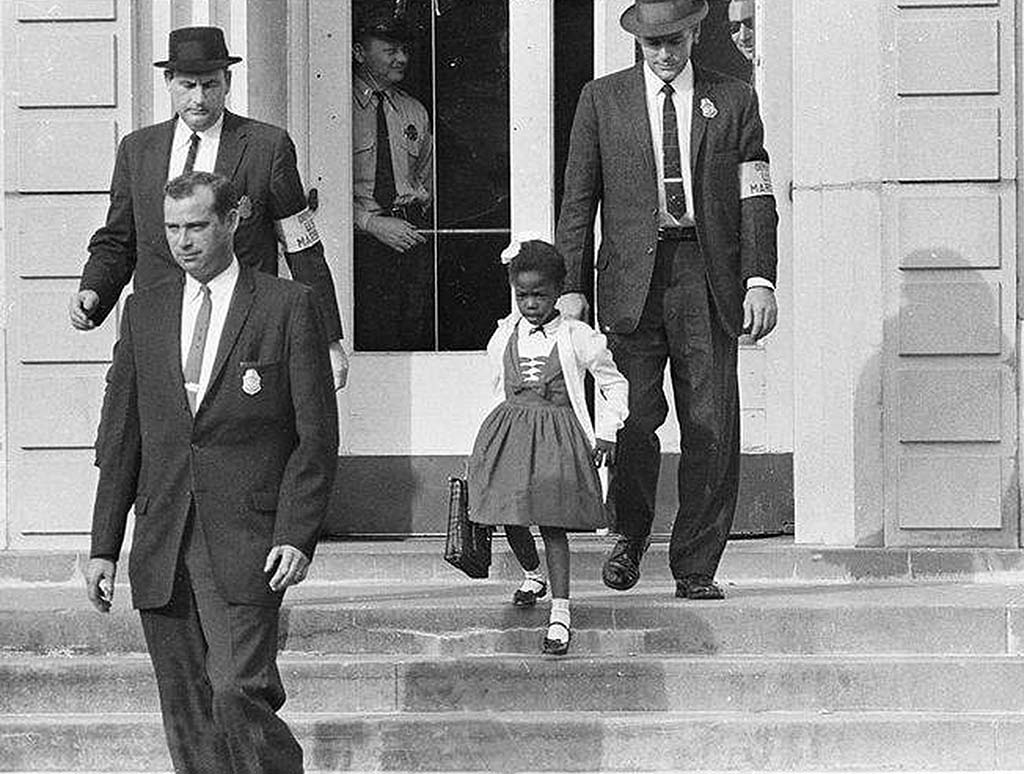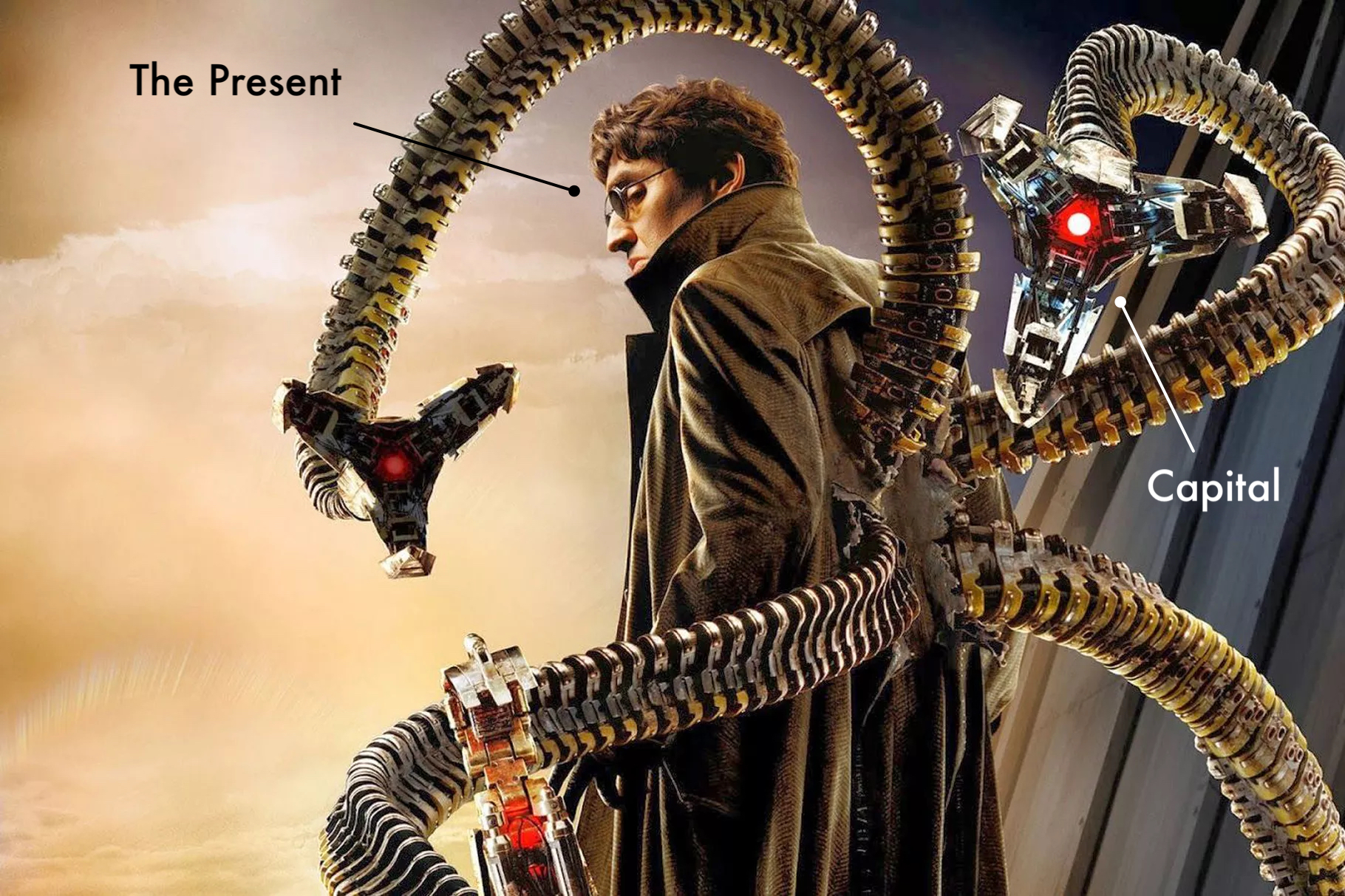Palaiphobia
I’ve been thinking a lot lately about the idea of the present moment as a Power, a power in the Pauline sense of a massively distributed, massively influential, universal agency directing the course of this world. It seems to me that the Present is a jealous God: it wants us to think only of itself, and never of the past or the future except insofar as images of them serve this instant.
But if we must think of either the past or the future, the Present prefers for us to think of the future, for two reasons: one, any future we imagine is just that, imaginary, and is really a kind of projection of our hopes and fears for our own moment. And two, thinking about the future produces anxiety, which has the effect of driving us back towards the Present, where we can be distracted from that anxiety. That is to say, the future is potentially useful to the Present in a way that the past is not.
Now, to be sure, we can interpret the past in such a way that we reinforce our current habits and attitudes and prejudices. (I have written about this in Breaking Bread with the Dead.) But this is of limited usefulness to the Present and is not really worth the risks. From the perspective of the Present, any genuine immersion in the past is likely to complicate our understanding of this moment and make it harder for us to know precisely what to do, because of all the complexity, good and bad, of the behavior of those who lived and fought and prayed and loved before us. If we learn to have compassion for those people, we just might translate that into compassion for the people who share this world with us but do not think just as we think. And that the Present cannot have.
Why does the Present not want this? Because present-mindedness is instantaneousness, it is automatic response, it is the gratification of whatever emotion happens to arise. As the poet Craig Raine has said, “all emotion is pleasurable” — this fact is the constant pole star of the Present.
These thoughts, though they’ve occupied me for a long time, were recently brought to the forefront of my mind by an essay on Harper Lee by Casey Cep, which contains this passage:
There is an important and interesting conversation happening now about the relevance of To Kill a Mockingbird to our country’s pursuit of racial justice and how we teach civic virtues like tolerance. For a long time, Lee’s novel has been one of the most banned books in the country, first criticized by conservatives who disapproved of its integrationist politics, then by liberals who disapproved of its use of racial slurs, and all along by censors of all persuasions who object to its depiction of rape and incest. Lately, though, the novel’s detractors are not calling for a ban or censorship, just retirement: taking it off of syllabi in order to make room for books by a more diverse group of authors, offering students work written with an eye to the current fight for racial justice, not one from the last century.
I don’t really care whether people keep reading To Kill a Mockingbird. What interests me about this paragraph is the idea — and it’s not necessarily Cep’s idea, just one that she rightly discerns as common — that there is a “current fight for racial justice” that’s different from “one from the last century.” But, you know, Dorothy Counts is still alive.

And Ruby Bridges is still alive — indeed, just now reaching retirement age.

John Lewis, the last of the Big Six, just died a few months ago. I myself remember quite vividly the integration of Birmingham’s schools. This isn’t ancient history we’re talking about, and we shouldn’t allow the artificial convention of “centuries” deceive us into believing that it is. The story of Dorothy Counts and Ruby Bridges and John Lewis and all the rest of those amazing people who now get lumped into that comforting abstraction we call the Civil Rights Movement is our story, though the Present wants us to forget that, wants to separate us from our brothers and sisters, wants to break all chains that link us to one another — so that we can be wholly absorbed into Now and indulge our instantaneous emotions rather than reflect thoughtfully on the ways that the past is not dead, it is not even past.
The Present wants to infect us with what I have decided to call palaiphobia, from παλαιός, palaiós, old, worn out. That’s how it alienates us from one another, makes us wholly dependent on what it can offer: sentimentality and rage.
UPDATE: My friend Adam Roberts has, quite justifiably, wondered whether my coinage uses the right word. Here's what I wrote in reply to him:
I have to say something about my decision to write of palaiphobia rather than archephobia. It was an agonizing one, I assure you. In these matters I take my bearings primarily from New Testament Greek, as you know, and of course there’s considerable overlap between the two words. When Paul writes in 2 Corinthians 5 that the old has gone and the new is here, he uses ἀρχαῖα; but when he talks about the “old leaven” in 1 Corinthians 5 he uses παλαιὰν ζύμην. As far as I can tell ἀρχαῖα and παλαιὰν would be interchangeable in those contexts. Both words can be neutral in their valence. But if you look at the overall patterns of usage, it seems that there’s something more generally disparaging about παλαιὸς, whereas there’s at least a potential dignity in ἀρχαῖα. When Paul talks, as he often does, about the “old man” that we must put off, he says παλαιὸς ἄνθρωπος. And παλαιὸς often has the connotation of something worn out, as when Jesus talks (in Matthew 9:16) about patching old clothes, ἱματίῳ παλαιῷ. I wanted to capture that disparagement in my coinage, the sense that the past is worn out, useless, of no value. I wonder if you think that makes sense?
UPDATE 2: after a conversation with Robin Sloan:
